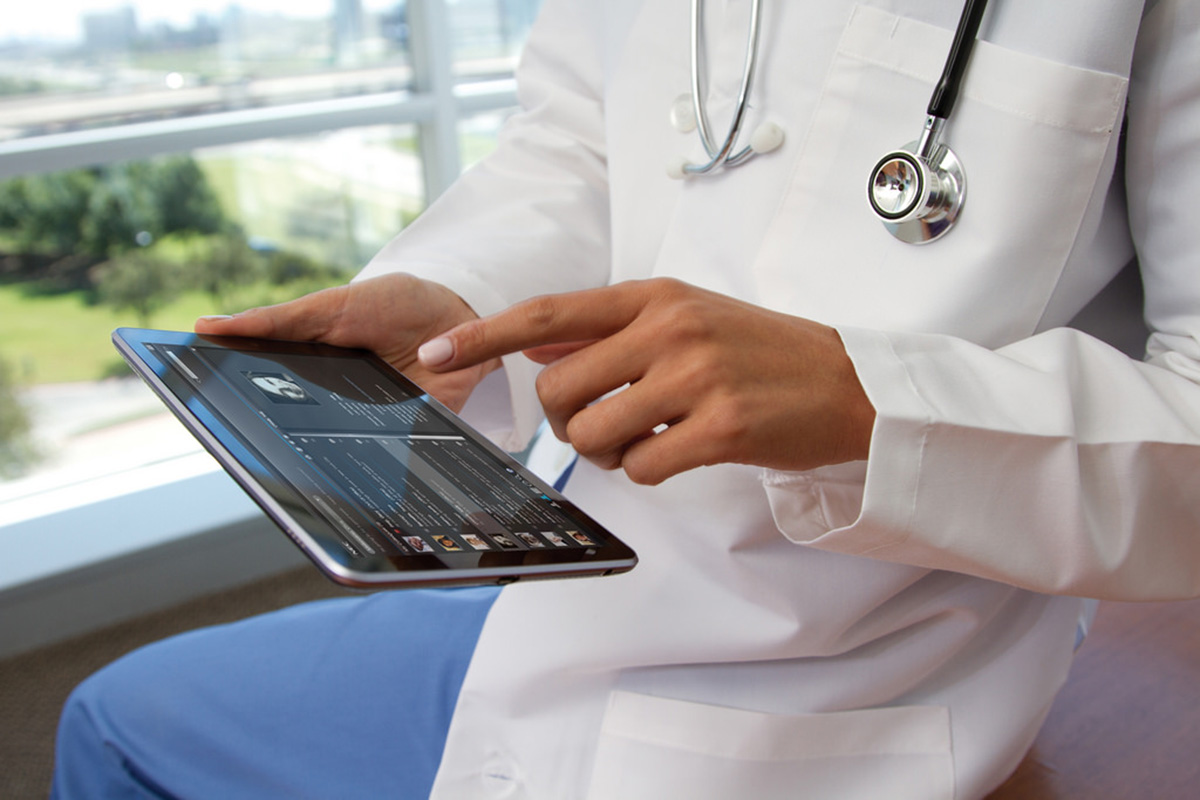What's the first thing you do when you're experiencing a worrying symptom? Chances are that you, rather than consulting your family care physician, run straight for your computer. "Dr Google", random folks on the internet call that. Twenty-first century patients are already connected and Google already plays a huge informal role in the way most of us gather information about our health.
It's not just patients, either — physicians, too, make frequent use of the internet when they encounter rare symptoms that they know could point to an obscure syndrome they know exists but can't quite remember the name of, for instance.

Thanks to the internet, of which Google is arguably akin to a monarch, valuable healthcare information is at the tip of your fingers. (A lot of nonsense too, of course, but as long as you know what's what, you're good.) Will Google penetrate our healthcare systems more formally as well, rather than "simply" being the vehicle that delivers us sources of information?
Whatever Happened To Google Health?
The new Google DeepMind Health is hardly the first time the popular search engine attempted to make an impact on the way in which we "do" healthcare. In 2008, a now almost-forgotten service called simply "Google Health" was launched with the aim of allowing users to integrate their health records, making them readily available in a single place. By cross-referencing different sources, the service would be able to provide patients with information about potential interactions between medications they were taking, allergies they might have, and health conditions they could be suffering from.
Google Health might have been a brilliant idea, but the service was nonetheless retired in 2014, just four years after its launch. Google itself cited "not having the broad impact that we hoped it would" as the reason for discontinuing its personal health records service.
What's DeepMind?
DeepMind started as a rather exciting British artificial intelligence company in 2010, co-founded by chess prodigy Demis Hassabis. The artificial neural network developed by the company mimicked the way in which humans learn from the start. Acquired by Google for an obnoxious sum of money in 2014, the company, now Google DeepMind, reached new heights.
READ Google Baby: How The Internet Made Surrogacy Go Global
At the start of 2016, its AlphaGo AI program was able to beat top player Lee Sedol from South Korea at Go, an ancient Chinese game infinitely more complex than chess. Considering that this game, which is over 5000 years old, is said to "possess more possibilities than there are atoms in the universe", that's certainly beyond impressive.
Go was chosen precisely because it's arguably the most complex game in the world, and yet also one that depends on intuition rather than pure logic to win. Predicting healthcare outcomes is not that different, and Google DeepMind is committed to "mak[ing] the world a better place by developing technologies that help address some of society's toughest challenges".
Google Deepmind Health Could Revolutionize Healthcare (But Should You Be Worried?)
What's Google DeepMind Health Working On?
Since the launch of Google DeepMind's Health division in February 2016, it has been working on such really exciting things as:
- Finding cures for the eye conditions age-related macular degeneration and diabetic retinopathy, which can both cause loss of vision.
- Looking into acute kidney injury.
- Investigating ways to help physicians handle their workloads much more efficiently, using smart phones. Google DeepMind Health recently acquired Hark, an app for healthcare staff with huge potential. Doctors, tests show, are able to respond 37 percent faster while using Hark than when relying on pagers.
All the while, Google DeepMind Health is committed to being physician-centered in its approach, ensuring that the products it develops are as practical as possible.

Google DeepMind Health: Bettering The World Or Ruling It?
Google DeepMind Health, in rather un-American fashion (it's still a British company after all), announced that it was committed to the same values as the National Health Service, namely universal and free (to patients) healthcare.
Over the course of all that, the data of over 1.6 million NHS patients was shared with Google. Without requiring direct patient consent. Oops. It's no wonder that some people are up in arms. While everyone would like improved healthcare, not everyone wants to share their personal information with a rather powerful company that sells personal data for profit, not even with one that says it has carefully devised privacy policies.
It's clear, meanwhile, that health is more than a mildly profitable niche on the internet. We're all concerned about our health and well-being — it's perhaps even the one interest that we all share as humans. Information about our health and wellbeing also gives the companies who possess it a scary amount of power over us.
Applications, though they may monetarily be free to download, can and do sell your sensitive data, whether concerning weight loss, fitness, quitting smoking, or hypertension, onto other private companies — including, perhaps, insurance companies. Companies like 23andme, incidentally co-founded by a Google co-founder's ex-spouse, could well know more about you and your DNA than you yourself do.
READ Google Glass: An Eye For Doctors
The tide of technological development is unstoppable. Artificial intelligence will be used to help us predict events and attain better healthcare outcomes in future. The internet will continue to play an ever-greater role in the lives of healthcare providers themselves, and they will use web-connected applications to manage our healthcare. This is great news, because it can benefit us all, and yet, yet discussions on how much power we'll allow individual companies to hold over our lives will very much be necessary.
- Photo courtesy of NEC Corporation of America
- Photo courtesy of NEC Corporation of America
- Photo courtesy of lydia_shiningbrightly via Flickr: www.flickr.com/photos/lydiashiningbrightly/5922817362


Your thoughts on this